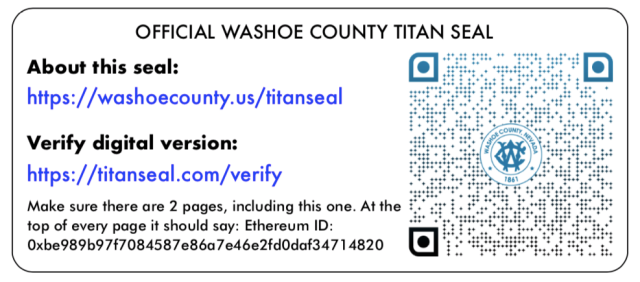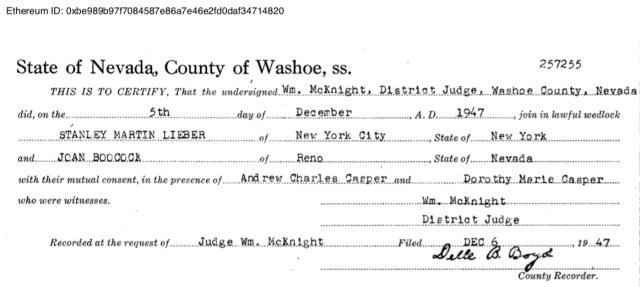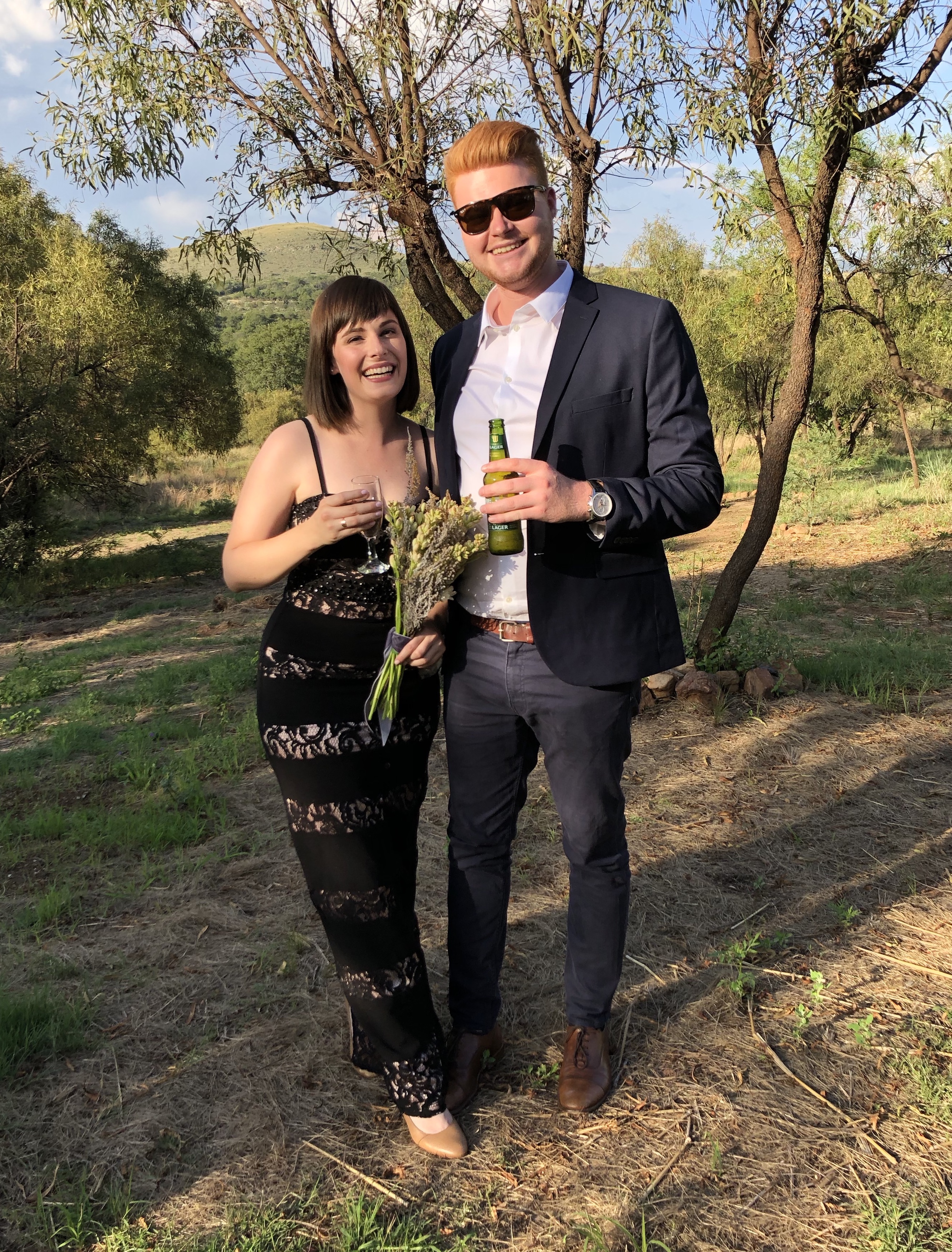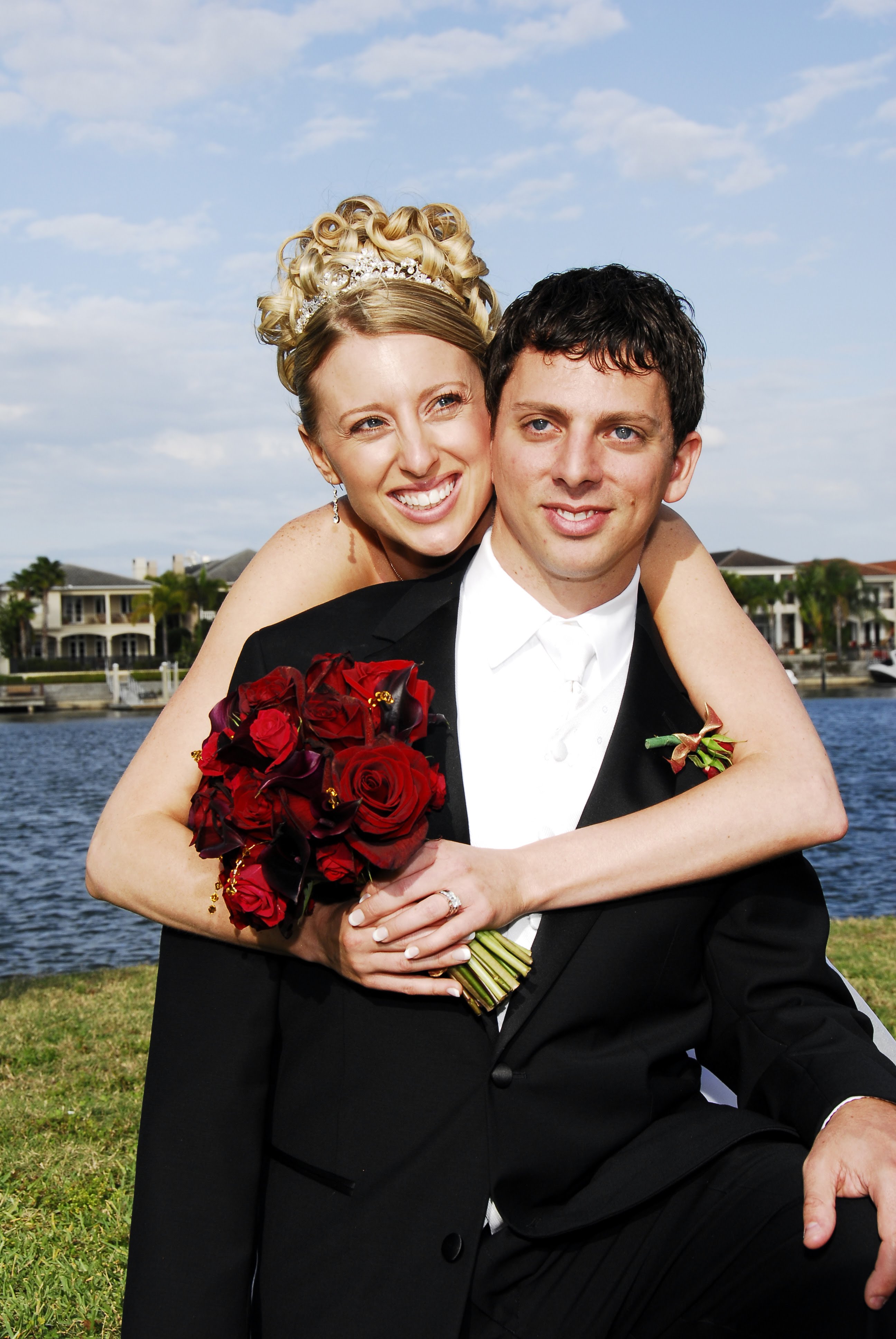As of early January 2019, the Washoe County Recorder’s office in northern Nevada sent out about 800 blockchain marriage certificates. The certificates, created only for people who got married in the county, went out to people as far away from Nevada as Spain and the Republic of Trinidad and Tobago. The one that made it to Spain was upheld as valid by the Spanish government.
“The way law is written in Nevada, each office issuing certified copies of documents gets to decide what constitutes certified copy,” explains Hunter Halcomb, the department systems technician at the Washoe County Recorder, which has pioneered blockchain marriage certification in the U.S. “We say they’re certified, but that doesn’t mean receiving agencies have the capability of receiving digital documents.” Still, Spain is on board.
The blockchain marriage certificate program started in northern Nevada counties in April 2018. Sending paper copies of marriage certificates took time (up to ten business days), and sending digital certificates was considered too insecure. The protection provided by the Ethereum blockchain solved these problems, providing a fast and safe way to send digital documents. Now, blockchain marriage certificates are gaining acceptance across the country.
The U.S.’s West Coast is especially receptive, where Halcomb sees the most official recognition of blockchain marriage certificates. That could just be because a higher number of people who live on the West Coast decided to get married in Reno, a popular destination for tying the knot in Washoe County. The county recorder’s office partnered with Titan Seal, a company that puts government records on the Ethereum blockchain, after the former Washoe County Recorder Larry Burtness met the company’s cofounder, Philip Dhingra, at a conference in February 2018. The conference was called “Building the New Nevada on Trust,” and it featured numerous talks about the “power and potential of blockchain,” beginning with one aptly titled, “Why a blockchain conference?”
Today, Halcomb knows of “at least three other counties in Nevada” talking to Titan Seal about using blockchain for official documents, including Clark County, home of Las Vegas. There, certified copies of real estate documents are the desired blockchain use case.
“We think blockchain technology is much safer than the paper certificates,” Halcomb tells us. “You have to beat the blockchain in order to forge one of these things, and with paper certificates, you just have to know about document forging, which is something people have been doing for a long time.”
Sample Washoe County blockchain marriage certificate, courtesy of Hunter Halcomb. If you look at the second page of the certificate, below, you'll see it's a sample Halcomb made for us from the late Stan Lee's marriage, which Halcomb was able to create since Lee's marriage took place in Reno.


Most people who’ve gotten married in northern Nevada and decide to put their marriage certificates on the blockchain do it for convenience. They don’t care so much about cementing their love in an immutable, digital safe haven, but rather about getting their certificate faster than they would if they had to wait for a paper version to arrive in the mail. Halcomb has had people who got married in his county call up with urgent requests for their certificates, insisting they’ll lose their commercial driver’s license unless they get the document ASAP. One person needed the certificate to prove their post-marriage name change so they could board a cruise ship about to leave the harbor.
But then there are the people who record proof of marriage on a blockchain for love. The following three couples have cemented their marriage, engagement, and vows (respectively) on that famously immutable ledger, signifying that their romances will last forever—well beyond the amount of time people, for instance, save the wedding announcements in the Sunday New York Times.
Susanne Tempelhof and James Fennell
Susanne Tarkowski Tempelhof and James Fennell were married on the Ethereum blockchain March 25, 2016 at the Bitcoin Embassy in Amsterdam, Netherlands. Their Ethereum marriage contract is forever cemented in Bitnation, a “decentralized, borderless, voluntary nation” founded by Tempelhof.
“As for legality,” Tempelhof tells us, “it’s a written contract on an immutable public ledger. In a nation-state it would count as something similar to a prenup agreement, but it wouldn’t count as a marriage agreement, which sometimes entitles you to certain benefits like tax breaks or whatever.”
Tempelhof and Fennell met on a rooftop in Benghazi in 2011, “as the NATO jets circled lazily over the blackened carcass of Qadafi’s regime,” Fennell writes in a Facebook post. Both were in the city doing government research, Tempelhof for the U.S. and Fennell for the U.K.
The two “anarchists in the making” parted ways, reuniting only 18 hours before their blockchain marriage in 2016.
Lex Campbell and Danielle Laity

Danielle Laity and Lex Campbell were engaged June 22, 2018 in London, England on the Ethereum blockchain. The proposal took place under a tree in Green Park outside of Buckingham Palace.
Laity is the head of research and development at the fintech startup Yoco in South Africa. Previously, she worked as the innovation manager at Africa’s Standard Bank and as the lead product manager at Luno.com, a South Africa-based bitcoin and ether exchange, where Campbell worked when it was called Switchless in 2013.
Today, Campbell works on the tokenized real estate investment platform MirisX. He has “always been a huge fan of cryptocurrency and blockchain,” he says, and has never “strayed too far from it” in his professional life. The couple currently lives in Cape Town.
“Seeing as we both work in this industry, we thought this is most certainly the start of marriage 2.0,” says Campbell. The pair signed their engagement contract with their private keys and had the hash engraved on the inside of Laity’s engagement band.
They plan to update their contract once they are wed.
Tiffany Cabibbo (née Williams) and Michael Cabibbo
Tiffany Williams and Michael Cabbibo married April 21, 2007 at the Davis Island Garden Club in Tampa, Florida.
Tiffany works today as a cardiac echosonographer. Michael is a sales engineer and the creator of SmartVows, the blockchain marriage contract he and Tiffany used to cement their nuptial promises.
The couple met in 2003, when Tiffany moved to Florida after attending college in Illinois and became Michael’s roommate. From roommates, they became friends and then lovers. Ten years after their wedding, they decided to get serious by putting their marriage vows on the Ethereum blockchain.
“I said, ‘How would you like to put our vows and our wedding certificate in a place where it will supposedly remain forever?’” Michael recounts. “And she was like, ‘Yeah, that sounds great. I love you, and I don’t plan on undoing this contract, so why not?’ She’s not as technical as I am, so she went along with it.”